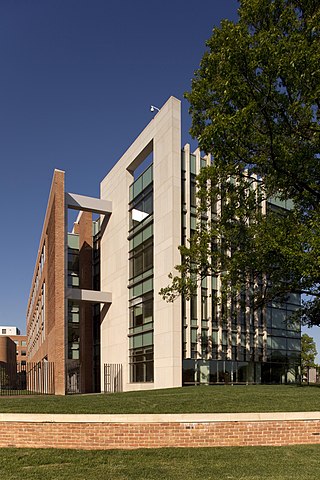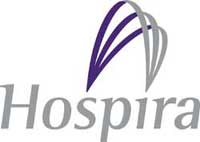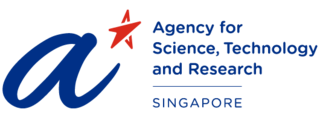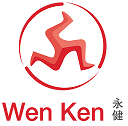
Biomedical engineering (BME) or medical engineering is the application of engineering principles and design concepts to medicine and biology for healthcare purposes. BME is also traditionally logical sciences to advance health care treatment, including diagnosis, monitoring, and therapy. Also included under the scope of a biomedical engineer is the management of current medical equipment in hospitals while adhering to relevant industry standards. This involves procurement, routine testing, preventive maintenance, and making equipment recommendations, a role also known as a Biomedical Equipment Technician (BMET) or as clinical engineering.

The United States Food and Drug Administration is a federal agency of the Department of Health and Human Services. The FDA is responsible for protecting and promoting public health through the control and supervision of food safety, tobacco products, caffeine products, dietary supplements, prescription and over-the-counter pharmaceutical drugs (medications), vaccines, biopharmaceuticals, blood transfusions, medical devices, electromagnetic radiation emitting devices (ERED), cosmetics, animal foods & feed and veterinary products.

A laboratory is a facility that provides controlled conditions in which scientific or technological research, experiments, and measurement may be performed. Laboratories are found in a variety of settings such as schools, universities, privately owned research institutions, corporate research and testing facilities, government regulatory and forensic investigation centers, physicians' offices, clinics, hospitals, regional and national referral centers, and even occasionally personal residences.

Biochemists are scientists who are trained in biochemistry. They study chemical processes and chemical transformations in living organisms. Biochemists study DNA, proteins and cell parts. The word "biochemist" is a portmanteau of "biological chemist."
Abbott Laboratories is an American multinational medical devices and health care company with headquarters in Abbott Park, Illinois, United States. The company was founded by Chicago physician Wallace Calvin Abbott in 1888 to formulate known drugs; today, it sells medical devices, diagnostics, branded generic medicines and nutritional products. It split off its research-based pharmaceuticals business into AbbVie in 2013.

Biochemical engineering, also known as bioprocess engineering, is a field of study with roots stemming from chemical engineering and biological engineering. It mainly deals with the design, construction, and advancement of unit processes that involve biological organisms or organic molecules and has various applications in areas of interest such as biofuels, food, pharmaceuticals, biotechnology, and water treatment processes. The role of a biochemical engineer is to take findings developed by biologists and chemists in a laboratory and translate that to a large-scale manufacturing process.
The Hanshin Industrial Region is one of the largest industrial regions in Japan. Its name comes from the on-reading of the kanji used to abbreviate the names of Osaka (大阪) and Kobe (神戸), the two largest cities in the megalopolis. The GDP of this area is $341 billion, one of the world's most productive regions. 2014 Osaka and Kobe's GDP per capita (PPP) was US$35,902.

Labcorp Drug Development is a contract research organization (CRO) headquartered in Burlington, North Carolina, providing nonclinical, preclinical, clinical and commercialization services to pharmaceutical and biotechnology industries. Formerly called Covance, the company is part of Labcorp, which employs more than 70,000 people worldwide. Labcorp Drug Development claims to provide the world's largest central laboratory network.
Fisher Scientific International, Inc. was a laboratory supply and biotechnology company that provided products and services to the global scientific research and clinical laboratory markets until its merger with Thermo Electron in 2006, after which it became Thermo Fisher Scientific. The company offered products and services to over 350,000 customers located in approximately 150 countries including pharmaceutical and biotechnology companies, secondary and higher education institutions, hospitals and medical research institutions, and quality control, process control and research and development laboratories.

Biocon Limited is an Indian biopharmaceutical company based in Bangalore. It was founded by Kiran Mazumdar-Shaw in 1978. The company manufactures generic active pharmaceutical ingredients (APIs) that are sold in approximately 120 countries, including the United States and Europe. It also manufactures novel biologics as well as biosimilar insulins and antibodies, which are sold in India as branded formulations. Biocon's biosimilar products are also sold in both bulk and formulation forms in several emerging markets.

ATCC or the American Type Culture Collection is a nonprofit organization which collects, stores, and distributes standard reference microorganisms, cell lines and other materials for research and development. Established in 1925 to serve as a national center for depositing and distributing microbiological specimens, ATCC has since grown to distribute in over 150 countries. It is now the largest general culture collection in the world.

Hospira was an American global pharmaceutical and medical device company with headquarters in Lake Forest, Illinois. It had approximately 19,000 employees. Before its acquisition by Pfizer, Hospira was the world's largest producer of generic injectable pharmaceuticals, manufacturing generic acute-care and oncology injectables, as well as integrated infusion therapy and medication management systems. Hospira's products are used by hospitals and alternate site providers, such as clinics, home healthcare providers and long-term care facilities. It was formerly the hospital products division of Abbott Laboratories. On September 3, 2015, Hospira was acquired by Pfizer, who subsequently sold off the medical devices portion of Hospira to ICU Medical.
Eppendorf, a company with its registered office in Germany, develops, produces and sells products and services for laboratories around the world.

The Agency for Science, Technology and Research (A*STAR) is a statutory board under the Ministry of Trade and Industry of Singapore.

Wen Ken Group is a family-owned group of companies and one of the largest Traditional Chinese Medicine companies in Southeast Asia. As a family business, the group has seen 3 generations and 5 successions. Founded in 1937, in what was then the colonial Malaya, Wen Ken Group specialises in the research and development, production and marketing of Traditional Chinese Medicine, Pharmaceuticals, Over-the-Counter (OTC) drugs and health products. In recent years, the group has also gone into the production and development of functional food and drink products. In general, the group's products are distributed to more than 15 countries including Indonesia, Brunei and Thailand.
Amneal Pharmaceuticals, Inc. is an American publicly traded generics and specialty pharmaceutical company. The company is headquartered in Bridgewater, New Jersey.
AMRI is a contract research and manufacturing organization that provides drug discovery, development, cGMP manufacturing and aseptic fill and finish to the pharmaceutical and biotechnology industries. Founded in 1991, AMRI operates in the United States, Europe and Asia, with its headquarters located in Albany, New York. AMRI has announced deals and collaborations with such companies as Pfizer Inc., Merck & Co., Eli Lilly and Co., Takeda, Genentech, Bristol-Myers Squibb Co. and GE.

L.J. Institute of Pharmacy, commonly referred as LJIP, is a private management institute located in Ahmedabad, Gujarat, India. The institute is approved by All India Council for Technical Education (AICTE) and Pharmacy Council of India (PCI) and is the part of L.J. Group of Institutes managed by Lok Jagruti Kendra (LJK) Trust. The institute is affiliated to Gujarat Technological University (GTU). The institute is approved by Department of Scientific and Industrial Research (DSIR), Ministry of Science and Technology, Govt. of India as Scientific and Industrial Research Organization (SIRO).

Andhra Pradesh MedTech Zone(AMTZ) is a medical technology park with Common Manufacturing Facilities & Common Scientific Facilities that include specialized laboratories, warehousing and testing centers such as the Center for Electromagnetic compatibility and safety testing, Center for Biomaterial Testing, Center for 3-D printing, Centers for Lasers, MRI Magnets, Gamma Irradiation, Molds, and many other industrial service centers.

Barkat Pharmaceutical Group is an Iranian Pharmaceutical public company, which was founded in 2010, named Tadbir innovation pharmaceutical company. The company provides services through cooperation between science-based institutions and scientists based on medicine around the world. It supplies 14 percent of all the country's essential drugs through its 25 subsidiaries. The company produces 700 kinds of products in the pharmaceutical sector and offers it internally.













